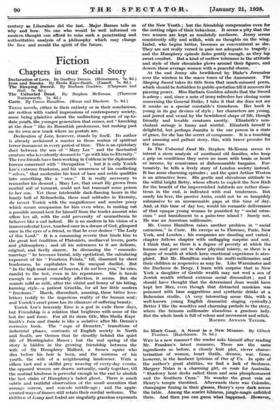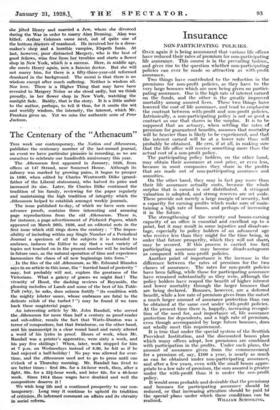So Much Good. A Novel in a New Manner. By
Glibert Frankau. (Hutchinson. 7s. 6d.) WHY in a new manner? the reader asks himself after reading Mr. Frankau's latest romance. There are the same ingredients as before, a closely knit plot, clever charac- terization of women, heart thrills, divorce, war. Gone, however, is the lambent lyricism of One of Us. In spite of the author's great abilities, we find a lack of freshness. Margery Nolan is a charming girl, en route for Australia. "Shadowy boat decks called them and seas phosphorescent and the Southern Cross." No wonder the great vein on Henry's temple throbbed. Afterwards there was Colombo, champagne fizzing in their glasses, Henry's eyes dark across the table. Among the scarlet hibiscus, jungle-magic enfolded them. And then you can guess what happened. However, she jilted Henry and married a Jew, whom she divorced during the War in order to marry Alan Denning. -Alan was killed, Arthur Colentan came next, out of quite one of the bottom drawers of manhood. He involved her in a dress- maker's shop and a horrible vampire, Elspeth Innis. At last, however, .Poor distracted Margery, who is the best of good fellows, Wins free from her troubles and starts a flower shop in New York, Whieft is a suedess. Here, in middle age, she meets Henri again, noa --faino-us floctor. But she will not marry him, for there is a fifty-three-year-old reformed drunkard in the background. The moral is that there is no wisdom except after much suffering. Neither is wisdom all. Nor love. There is a_ Higher Thing that may have been revealed to Margery Nolan as she Stood sadly, but we think proudly, in- her flower shop in New York, watching the sunlight fade. Baldly, that is the story. It is a little unfair to the author, perhaps, to tell it thin, for it omits the wit and worldly wisdom, the intensity, the interest, which Mr. Frankau gives us. Yet we miss the authentic note of Peter Jackson.







































 Previous page
Previous page